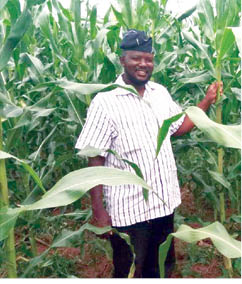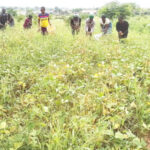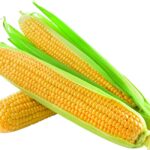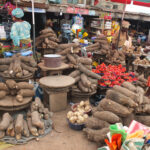“The three tractors that worked on my farms have so far used about 10,000 litres of diesel. Last year, I spent over N60 million on fertiliser alone.
But this year, it cost me about N127 million, which is a difference of over N70 million. The diesel that cost a mere N4000 last year, this year the cost has tripled,” a Gombe-based large-scale farmer, Abubakar Abdullahi, revealed while sharing his story.
FG moves to implement $700m ACReSAL project in 19 states, FCT
WAPP plans liquidity fund for regional electricity market
Speaking in an interview with Daily Trust on his farm, he lamented that the high prices of energy sources like diesel will have multiplier effects on prices of food and spur high inflation.
Abubakar Abdullahi, popularly known as Habu DK, is in his middle 40s and a large-scale farmer with over 100 hectares of farmland in Dukku and Kwami LGAs of Gombe State.
He mostly plants food and cash crops like maize, millet, beans, Bambara nuts, groundnut, sesame and guinea corn, among others.
Habu DK said the rising cost of fertilisers and a very insignificant support from government has discouraged many farmers, especially small-scale farmers, from farming this rainy season.
He said, “We purchased our fertiliser directly from the fertiliser companies which is relatively cheap, but when we need it urgently, we buy from the market at higher prices because we cannot wait for the government to come with its own fertiliser.
“For the past eight years that I have been engaged in full-scale farming, I got 400 bags of the government subsidised fertiliser only once. I have never benefitted from any of the government’s programmes, because the Central Bank of Nigeria (CBN) programmes are not targeted at the real farmers but people that can play to the gallery. So, I can assure you that the real farmers have not benefited.”
Habu DK added that because of the high cost of fertiliser, most farmers are turning to crops that require less fertiliser this farming season which, he said, will affect prices of food.
“This year, because of the high cost of fertiliser, I planted more millet in my farm, because it requires less fertiliser. This will definitely affect our production and we may witness high cost of food next year.
“But as a farmer, one cannot say he must get equal harvests at the end of each harvesting season. Notwithstanding, millet requires less fertiliser, so we are hopeful that we can still get good harvest at the end of the season,” he said.
He explained that a bag of fertiliser that cost N10, 000 last year is selling at over N26,000 now, and that diesel that was sold at N250 last year is now N750-N800 per litre.
“Last year. I used over nine trucks in my farms that is 5,085 bags of fertiliser. Then a bag of fertiliser was sold at N10,000 but this year, it has gone up to N25,000.
“The three tractors that worked in my farms have so far used about 10,000 litres. Last year, I spent over N60 million on fertiliser alone. But this year it cost me about N127 million, which is a difference of over N70 million. The diesel that cost N4000 last year, this year cost us triple of that amount,” he said.
The farmer lamented that despite providing a means of livelihood to hundreds of people and contributing towards achieving the much-desired food security, farmers are not getting any intervention from the government.
“On a daily basis, I used to employ over 500 people at a time to work at the various farms, depending on the activity we were doing at the respective farms. From harrowing, applying fertilizer, planting the seedlings, harvesting and processing the yields.
“So, hundreds of people worked on the respective farms throughout the farming year. People from as far as Niger Republic, Sokoto and other neighbouring states are working on the farms during the season.
“They stay in the farmhouse until the end of the rainy season. These categories of people are paid their due daily based on the number of ridges they worked on,” he said.
Habu DK added that there are about 50 people — from drivers, managers, supervisors, security and other supporting staff that he directly employed for farm work on a daily basis.
“Apart from farming, I am also into husbandry — engaged in the fattening of cattle and other domestic animals I breed at the farms after the raining season.”
Going through memory lane, Habu DK said he ventured into farming in 2014, while serving as chairman of the Gombe Grains Merchants Association, with two farms of about 40 hectares. “From there I expanded into several hectares that now I cannot exactly tell you the actual size of my farms.
“But my three tractors have been working on the farms for the past three months – since May. That is to tell you how big the farms are and I used over nine trucks – that is 5,085 bags of fertiliser on the farms.”
Challenges affecting farming
He outlined the high cost of fertiliser and other farm inputs as some of the predicaments of farmers.
“A situation whereby a bag of fertiliser costs N26,000 and a bag of maize costs just N17,000 is not sustainable. Secondly, the hike in the price of diesel will also affect both the farmers and the buyers of farm produce.
“Thirdly, the labourers have also increased their charges because of the high inflation affecting basic commodities and that will also affect the price of the commodities after harvest.
“The fourth are our project vehicles, also use diesel and fuel, which have also witnessed an increase in prices.
“Lastly, the cost of other farm inputs like seedlings, herbicides and pesticides has also increased and there is no support from the government.
“So, if these things are not checked, farming will be greatly affected and that will affect the prices of food items in the market. Therefore, the government should sit up and address these challenges,” he said.
Habu DK added that as a solution, government should be actively involved in the farming business; it should study countries that are doing well and engage with the real farmers in its intervention programmes.
The farmer mentioned the provision of jobs to hundreds of people, especially the youth getting a means of livelihood as one of his major achievements as a large-scale farmer.
“Farming has also given me a real job that keeps me engaged throughout the year and also cater for my family,” he said.
The soaring prices of fertiliser in Nigeria are forcing farmers to plant less fertiliser-demanding crops like millet and sesame among others, a development that poses a threat to the production of key crops like maize, rice and others in the country.

 Join Daily Trust WhatsApp Community For Quick Access To News and Happenings Around You.
Join Daily Trust WhatsApp Community For Quick Access To News and Happenings Around You.



